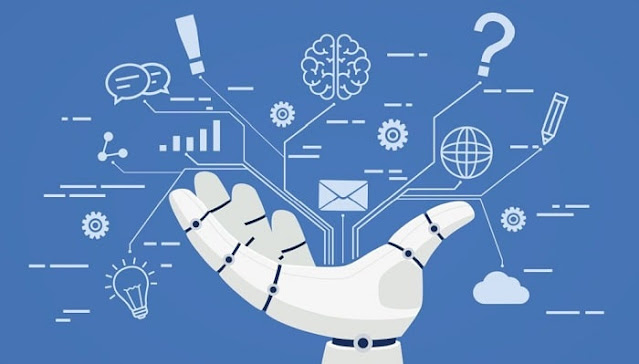
The marketing landscape has been revolutionized by technology, and one of the most disruptive forces at work is Artificial Intelligence (AI). Businesses are moving beyond traditional methods and investing in AI to gain a competitive edge. An AI marketing agency often leads this transformation, offering cutting-edge services that leverage AI tools for everything from data analysis to customer engagement.
This article guides this new landscape, exploring key trends and innovations that AI is bringing to marketing. The discussion will cover the role of AI in handling big data, creating hyper-personalized customer experiences, deploying chatbots for efficient customer service, leveraging predictive analytics for forward-thinking strategies, and ensuring ethical considerations in AI applications. These topics are crucial for understanding how AI can optimize marketing efforts, making it more responsive, intuitive, and efficient.
Crunching Big Data
Data is the new gold, and AI-driven marketing analytics tools are the modern-day miners. Conventional data analysis methods are not well-equipped to manage the vast quantities of data that modern businesses collect. AI tools employ complex algorithms that can sift through massive datasets to identify vital market trends and consumer behavior. This doesn't merely simplify the data; it transforms it into valuable insights. Businesses can use this refined information to make data-backed decisions that are far more accurate than those based on human intuition or outdated methods.
Hyper-Personalization
The age of generalized, one-size-fits-all marketing is waning fast. Users today expect personalized experiences tailored to their individual preferences and needs. AI accomplishes this through machine learning algorithms that analyze everything from consumer purchasing history to browsing habits. With these insights, marketers can craft highly customized campaigns and offers, making customers feel understood and valued. Hyper-personalization goes beyond product recommendations; it can be applied to the entire user journey, from the initial touchpoint to the final transaction and even post-purchase follow-ups.
Chatbots And Virtual Assistants
Chatbots aren't just automated response units; they are intelligent entities capable of engaging in meaningful conversations with consumers. With advancements in natural language processing, these bots can answer queries, resolve issues, and provide valuable information while maintaining a genuinely human conversation. Such real-time responsiveness boosts customer satisfaction and loyalty. Besides, the bots collect data during these interactions, offering more fodder for improving customer experiences in the future.
Predictive Analytics
It is to use existing data to forecast future events, consumer behavior, and trends. This is a giant leap from merely understanding what has happened to proactively shaping future strategies. Imagine knowing which products are likely to become best-sellers or predicting seasonal fluctuations in sales before they occur. Businesses can optimize stock levels, tweak marketing strategies, or launch targeted promotions based on credible, data-driven predictions.
Ethical Considerations
As wonderful as AI-driven marketing sounds, it is essential to approach it with ethical caution. Data privacy is a significant concern because personal customer information is continually processed and analyzed. Ensuring compliance with privacy regulations like GDPR is crucial. Additionally, businesses must be vigilant against unintentional algorithmic biases, which could lead to unfair or discriminatory practices. Ethical AI use is not just a legal requirement but a moral obligation, and it is vital for maintaining consumer trust.
Conclusion
In an era where marketing rules continuously evolve, AI is a pillar of innovation, giving companies actionable insights and tools to reach their audience more effectively. Many firms are seeking the expertise of an AI marketing agency to stay ahead of the curve and effectively implement these AI-driven strategies. However, it is imperative to proceed with caution. The article has shown that while AI offers remarkable opportunities for growth and customer engagement, it also raises significant ethical issues that need urgent attention.
Understanding and integrating these factors ensures a more responsible and practical application of AI in marketing. Balancing technological promise with moral responsibility is critical for long-term success. This closing thought underscores the new reality: AI-driven marketing is not just an upcoming trend but the present and future of how businesses engage with their audience.
